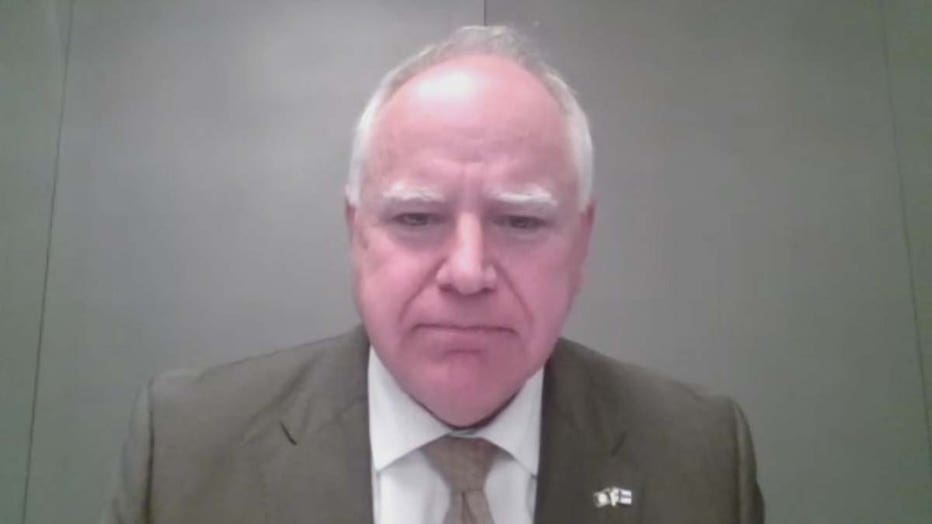Walz applauds federal funding for energy help while some lawmakers call it a 'Band-Aid'
(FOX 9) - On Thursday Minnesota Governor Tim Walz joined the United States Secretary of Energy Jennifer Granholm and governors from other states to discuss federal funding for energy assistance.
The U.S. Energy Information Administration put out a report predicting people who heat their homes with natural gas will pay 30 percent more on their energy costs this winter. Other experts, including Secretary Granholm, say Americans will likely pay more than normal for their energy this winter.
The cost of energy is fluctuating worldwide because of geo-political and economic factors. Experts say several events, such as a hot summer that caused people to use more energy and the demand energy increasing as production picks up from a pandemic lull, are factors that are leading to higher energy costs.

Minnesota Governor Tim Walz virtually met with governors across the country to discuss federal energy assistance funding.
The State of Minnesota has received around $270 million in federal funding to help Minnesotans cover the cost of rising fuel prices this winter. $167 million came specifically from the American Rescue Plan, a COVID-19 stimulus package passed by Congress.
This year, Minnesota expanded the eligibility for the energy assistance program. Now a household of four making less than $68,000 a year. To find more information on if you qualify, click here.
"The ability to heat your house and keep your children warm should not depend on your income. Everybody deserves to be warm," Governor Walz said while speaking at the White House virtual event.
Some local lawmakers say support for energy assistance programs are welcome, but are a "Band-Aid" for greater problems related to inflation.
In a release sent out on Thursday night Minnesota Senate Energy Committee Chair Dave Senjem said: "I greatly welcome additional money into the Low-Income Home Energy Assistance Program to keep people warm this winter, but all Minnesotans deserve reliable and affordable energy, and we should be advancing policies that recognize the needs of all consumers as well as pursuing cleaner energy sources."
Commissioner Grace Arnold from the Minnesota Department of Commerce says diversifying energy sources and finding more efficient ways to heat homes and use less energy overall is a long-term goal for government officials and says she recognizes assistance is a shorter-term fix.
"It’s an international market. It’s very complicated, but what’s not complicated is you need to pay your energy bill and you need to keep your home warm enough," Commissioner Arnold said.

